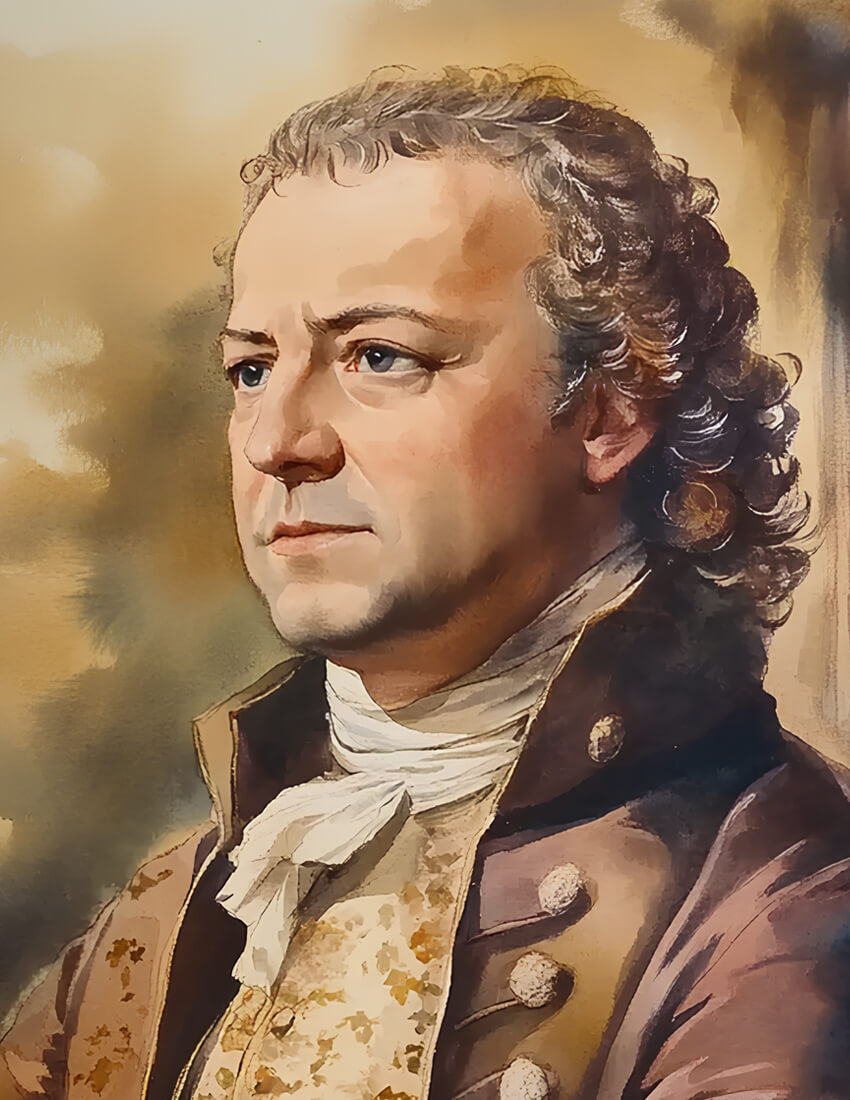Born: September 27, 1735, Swaffham, Norfolk, England.
Died: June 8, 1790, Showell Green, Warwickshire, England.
Buried: Key Hill Cemetery, Birmingham, England.
Robert Robinson

Hymns by Robert Robinson
On a crisp autumn day in 1735, in the quaint market town of Swaffham, Norfolk, a child was born who would one day pen words that would echo through centuries of Christian worship. Robert Robinson, son of a customs officer and a woman of modest means, entered a world that would test his faith, challenge his convictions, and ultimately inspire him to write one of Christendom’s most beloved hymns. But before his words would touch countless hearts, young Robert would face a journey of loss, rebellion, and redemption that reads like a story straight from the pages of scripture.
Early Years: Streams of Sorrow
Robert’s childhood was marked by early tragedy. At the tender age of five, he bid a final farewell to his father, Michael Robinson. This loss cast a long shadow over his youth, compounded by the bitter sting of rejection from his wealthy maternal grandfather, Robert Wilkin. The elder Wilkin, never having reconciled himself to his daughter’s marriage beneath her station, coldly disinherited young Robert, leaving him a mere ten shillings and sixpence – a paltry sum that spoke volumes of family discord.
Despite these hardships, Robert’s uncle saw promise in the boy and sponsored his education at a school in Scarning under the tutelage of Reverend Joseph Brett. But at fourteen, Robert’s formal schooling came to an abrupt end. Sent to London as an apprentice to Joseph Anderson, a hairdresser in Crutched Friars, Robert found himself thrust into the bustling, often unforgiving world of the big city.
A Wandering Heart
As Robert entered his late teens, the absence of a father’s guidance began to show. He fell in with a rowdy gang in London, their raucous laughter and mischievous deeds a far cry from the hymns that would later flow from his pen. Yet even as his hands learned the trade of barbering, Robert’s mind remained hungry for knowledge. He devoured books at every opportunity, his appetite for learning undiminished by his circumstances. Little did he know that this voracious reading would lay the foundation for his future ministry.
It was in 1752 that Robert’s life took a dramatic turn. On a lark, he and his gang decided to attend a sermon by the fiery Calvinist preacher George Whitefield – their intention more to mock than to listen. But as Whitefield’s powerful voice rang out with the words of Matthew 3:7, “O generation of vipers, who hath warned you to flee from the wrath to come?”, Robert found himself deeply moved. He later recalled, “Those words sunk into my heart like lead in the water. I wept… and for weeks, I could think of little else.”
This experience sparked a profound change in Robert, leading to his conversion to Evangelical Methodism and setting him on a path of spiritual exploration that would define the rest of his life. Years later, he would pen the words that echoed his own journey from wayward youth to man of faith: “Prone to wander, Lord, I feel it, prone to leave the God I love.”
Finding His Calling
The following years saw Robert on a denominational journey that mirrored his spiritual growth. He spent time with Calvinistic Methodists, assisted at a tabernacle in Norwich, and even started his own Congregational Chapel. But it was in 1759 that Robert found his true home at Stone-Yard Baptist Chapel in Cambridge, where he would remain for the rest of his life.
Robert’s ministry at Cambridge was marked by growth and influence. Under his leadership, the congregation swelled to over a thousand members. A new chapel was built in 1764 to accommodate the burgeoning flock. His reputation as a preacher and thinker drew notable figures to his services, including Professor of Music Dr. John Randall and the controversial William Frend.
A Man of Many Talents
But Robert was more than just a man of the pulpit. With characteristic industriousness, he purchased an eighty-acre farm by the river at Chesterton. Here, he kept livestock, grew crops, and even dabbled in trading as a corn and coal merchant. This practical side of Robert’s life stands in stark contrast to the lofty spiritual themes he explored in his writings and sermons.
A Fount of Blessing
It was during his time at Cambridge that Robert penned the words to “Come Thou Fount of Every Blessing.” The hymn, with its poignant acknowledgment of human frailty and divine grace, would become his most enduring legacy. In its lines, we hear echoes of Robert’s own spiritual journey:
Jesus sought me when a stranger,
Wandering from the fold of God;
He, to rescue me from danger,
Interposed His precious blood.
Yet, in a twist of irony that Robert himself might have appreciated, he reportedly later in life expressed to a fellow traveler that he would give “a thousand worlds” to recapture the fervent faith he felt when writing those immortal lines.
The Final Chapter
As Robert entered his final years, he found himself drawn to new theological ideas. He traveled to Birmingham in June 1790 to meet Joseph Priestley, a prominent Unitarian thinker. During this visit, Robert preached two charity sermons, showcasing his enduring commitment to both spiritual and social causes.
It was in Birmingham, in the early hours of June 9, 1790, that Robert Robinson breathed his last. He passed away in his sleep at the home of William Russell, a Unitarian benefactor. His funeral, conducted by Priestley himself, marked the end of a life spent in passionate pursuit of spiritual truth.
A Legacy of Faith
In the years following his death, rumors swirled about Robert’s theological leanings in his final days. Some claimed he had converted to Unitarianism, a notion that seems at odds with his lifelong defense of Christ’s divinity. In one of his final sermons, Robert had declared Jesus “infinitely lovely as both God and man,” a statement that appears to rebuff accusations of doctrinal wavering.
Robert Robinson’s life, much like the words of his famous hymn, was marked by moments of profound faith and seasons of wandering. From his humble beginnings in Swaffham to his influential ministry in Cambridge, from his early loss to his later success, Robert’s journey was one of constant seeking. Today, as congregations around the world raise their voices to sing “Come Thou Fount of Every Blessing,” they echo not just the words, but the very heart of a man who knew both the joy of finding God’s grace and the struggle to remain in it.
In Robert Robinson’s story, we find a powerful reminder of the enduring nature of faith, even in the face of life’s harshest realities. As his hymn so beautifully puts it:
O to grace how great a debtor
Daily I’m constrained to be!
Let Thy goodness, like a fetter,
Bind my wandering heart to Thee.

